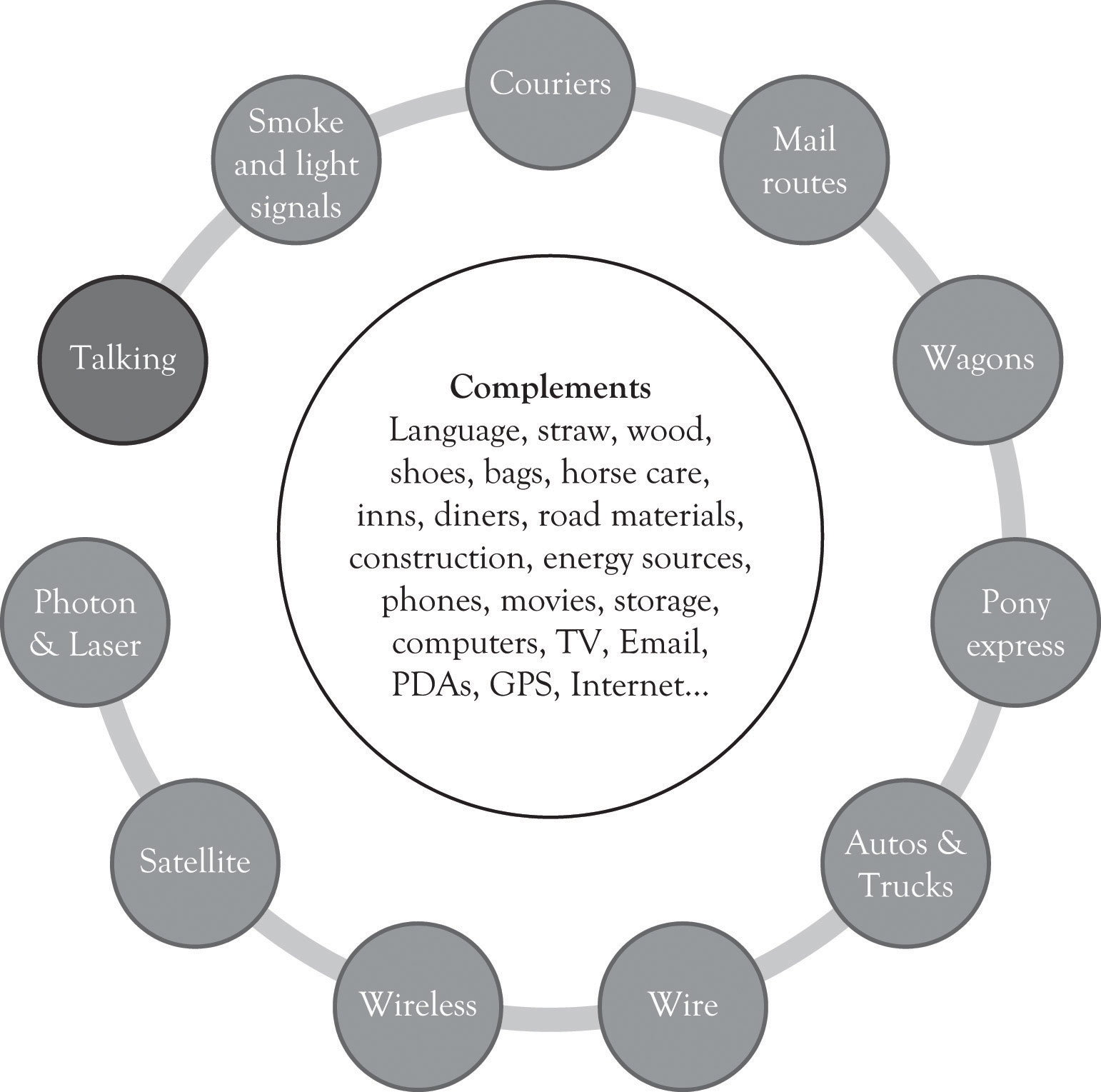This is “Arbitrage: Producer’s Paradise and Consumer’s Dread”, section 3.9 from the book Creating Services and Products (v. 1.0). For details on it (including licensing), click here.
For more information on the source of this book, or why it is available for free, please see the project's home page. You can browse or download additional books there. To download a .zip file containing this book to use offline, simply click here.
3.9 Arbitrage: Producer’s Paradise and Consumer’s Dread
Figure 3.8 Innovation Driven by Substitutes and Complements

When I was a youngster in Helena Montana, I wanted to learn how to play the bongo drums like Desi Arnaz.The “I” is Sanders. I went to a local store and inquired about the cost for a set of bongo drums. I believe that they wanted $40; this was too much money and I decided to forgo the purchase and take up the tuba because it was available through the school.I eventually got the bongos as a Christmas gift from my grandmother. She bought them from JC Penney’s for a substantially lower price. I found out a year later that the same bongos were available in a mass-market catalog for a lot less money. I possessed inferior information on the value of the bongos. Information asymmetryOccurs when the seller has better information about the value of a product than the buyer. occurs when the seller has better information about the value of a product than the buyer. In many situations, it is the seller who knows more about the value of a product than the buyer; however, it is possible that the buyer knows more about the value of the product than the seller. Selling a product at a higher price in a market where consumers are not knowledgeable or privy to the true market price is called arbitrage. ArbitrageSelling a product at a higher price in a market where consumers are not knowledgeable or privy to the true market price. can lead to excess profits and inefficiencies in the supply chain because the consumer cannot turn to other suppliers and because the consumer does not know the competitive price for the product and/or cannot get access to competitively priced products. Arbitrage presents the opportunity for suppliers and producers to exploit the consumer’s lack of product knowledge and earn higher profits.
Arbitrage is very important to commodity traders. Arbitrage enables the seller to buy a product, such as a commodity, in one market and sell the product in another market for a higher price. The arbitrageur makes money by taking advantage of the price disparity by selling in one market while simultaneously buying in the other. Excess profits are symptomatic of asymmetric information and inefficient markets. When someone knows more than someone else about a product, they will often use that information to achieve above-average profits or to secure resources at a steep discount. The benefactor of the windfall rarely views good deals as gluttonous. The number of suppliers and consumers for bongos in Helena Montana during the 1960s was very small, and there were very few opportunities to locate musical instrument catalogs that contained bongo drums. This is asymmetric information at work. A market is efficient when price discovery is easy and information is transparent and readily available to all market participants.
Arbitrage can also hurt the producer of a low-cost item. Someone could buy all of Joan’s low-cost jewelry boxes, repackage the jewelry box, add a little do-dad, and then sell them at a higher price in the same market. This could effectively reduce her high-end revenues. Continuous product differentiation along with marketing and searching for the most up-to-date information can reduce the impact of arbitrage. This can be summed up in the following relationship:
Information Asymmetries → Arbitrage → Bad Deals.



